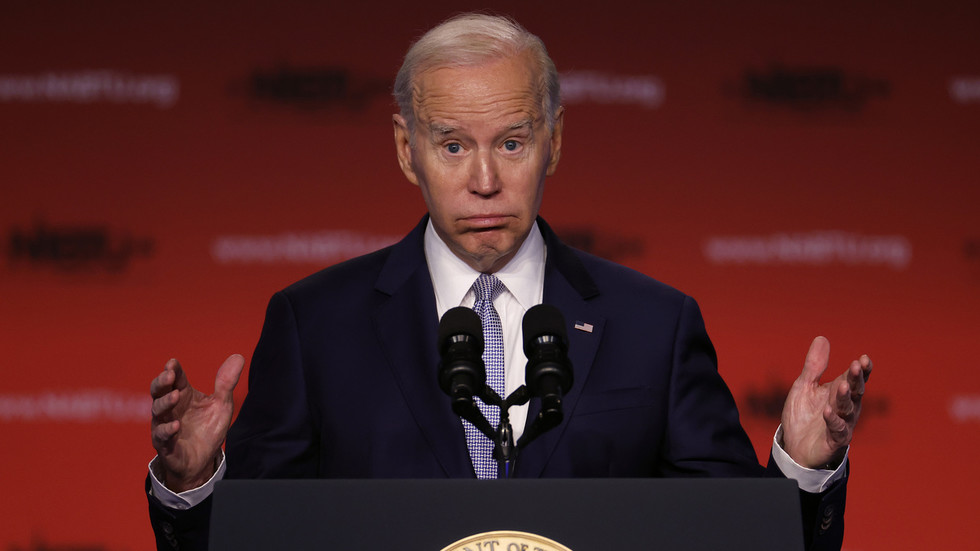In the aftermath of the 2020 election, President-elect Donald Trump has utilized social media to ridicule the economic policies of his predecessor, Joe Biden, particularly focusing on the controversial topic of funding for Ukraine. Recently, Biden granted his son, Hunter Biden, a blanket pardon concerning any actions taken between January 2014 and December 2024. This decision followed Hunter’s conviction for lying about his substance abuse history during a firearms application process. Notably, Biden had previously stated his unwillingness to grant his son such clemency, which adds a layer of complexity to the public’s perception of his presidency and suggests potential hypocrisy. Trump’s campaign seized upon this moment, portraying it as indicative of a broader misuse of the justice system under Biden’s administration.
Trump’s mockery was further amplified on social media when he shared a meme that humorously outlined his interpretation of ‘Bidenomics.’ The meme depicted a series of questionable financial transactions that led from American taxpayers to Ukraine and back to the Bidens, suggesting a quid pro quo arrangement. This narrative is rooted in historical context, as Hunter Biden served on the board of a Ukrainian gas company during his father’s vice presidency. The meme alleges that 10% of all international contracts went to the “Big Guy,” a reference widely assumed to hint at Joe Biden, giving the impression of corruption and nepotism intertwined with U.S. foreign policy.
These events come against the backdrop of Biden’s ambitious economic plan, termed ‘Bidenomics,’ aimed at revitalizing the U.S. economy in the wake of the catastrophic effects of the COVID-19 pandemic. In response to concerns regarding economic recovery, Vice President Kamala Harris, the Democratic candidate for 2024, has publicly defended the state of the economy, claiming that it is robust and that Biden’s economic strategies are effective. The administration has focused on messaging that attempts to reassure American voters about economic progress; however, recent polls suggest a significant disconnect between their narrative and public sentiment.
The political ramifications of Biden’s pardon for Hunter Biden are likely to be significant as they could reinforce skeptical views of his administration among voters. Trump’s campaign seeks to utilize these sentiments to rally support by positioning Biden as out of touch with the American people and exploiting perceptions of corruption. This might resonate particularly in swing states, which are pivotal in determining election outcomes, highlighting a compelling narrative for Trump’s campaign.
While Biden’s team continues to promote the success of ‘Bidenomics,’ including substantial funding toward economic initiatives, opposition narratives are emerging, questioning the efficacy of these measures. It is essential to recognize the differing interpretations of economic progress being expressed by both sides. On one hand, there are assertions of recovery and growth trajectories; on the other, claims of economic mismanagement and corruption serve to undermine the administration’s credibility. The impacts of such contrasting narratives have far-reaching implications as the upcoming elections approach, where every decision or statement could swing undecided voters.
As the political landscape continues to evolve, it remains crucial for both parties to clarify their economic visions and repairs trust among constituents. The legitimacy of both Biden’s economic agenda and Trump’s critiques hinges on their ability to resonate with the public’s experiences. Voter perception, especially regarding issues of integrity and economic performance, will dictate the trajectory of the 2024 presidential race, underscoring the importance of both messaging and policy effectiveness in an increasingly polarized political environment.

